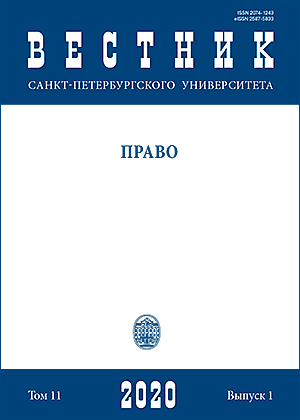The Law on information during an era of Big Data
DOI:
https://doi.org/10.21638/spbu14.2020.101Abstract
In the article the rules of the Federal law “About Information, Information Technologies, and Information Protection” are investigated in relation to the emergence of a digital economy. Through comparison of private law and public law approaches to regulation of the information relations, the author comes to the conclusion that data in digital form processed with greater velocity and in large volumes, assumes other regulation logic. The design of information access, enforced as a subjective right, is focused on information target requests that are ineffective in digital conditions. The Russian State already creates Open Data, but it is rather for formal performance of the Law, whereas the main purpose of Open Data is the free reusing of this data by business structures, citizens and civil society institutes for obtaining new data and new products. The interaction with society is overlooked, as is the case with transparency as well. Transparency as the principle approved in public law overcomes even individualism of private law, having paved the way for the principle of openness by default, peculiar to an era of Big Data. The Law on information ignores the existence of data in digital form, so the modification of the legislation is required. It would be reasonable to test the Law on information in new digital conditions in the mode of a regulatory sandbox that will allow for determining the norms which have become absolutely outdated, which need modification, and are capable of being applied without problems to digital technologies. At the same time it will be quite difficult to provide a balance of public and private laws: in a technical format of data creation the purpose is already present that neutralizes the difference between the public law relations and the private law. As a result, we will have a confusion of public law and private law regulators.
Keywords:
digitalization, data, open data, big data, information, law, regulatory sandbox
Downloads
References
Downloads
Published
How to Cite
Issue
Section
License
Articles of "Vestnik of Saint Petersburg University. Law" are open access distributed under the terms of the License Agreement with Saint Petersburg State University, which permits to the authors unrestricted distribution and self-archiving free of charge.






